|
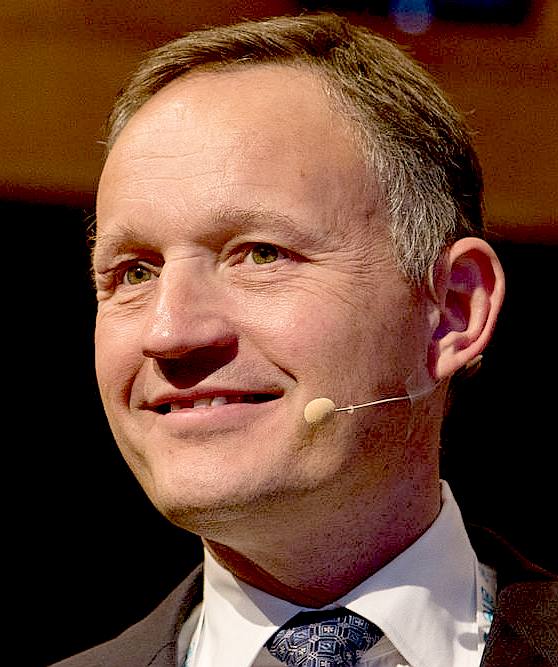
Antony Jenkins Barclays Bank Group Chief Executive
Barclays is a British multinational banking and financial services company headquartered in
London. It is a universal bank with operations in retail, wholesale and investment banking, as well as wealth management, mortgage lending and credit cards. It has operations in over 50 countries and territories and has around 48 million customers. As of 31 December 2011 Barclays had total assets of US$2.42 trillion, the seventh-largest of any bank worldwide.
Barclays is organised within these business clusters: Corporate and Investment Banking, Wealth and Investment Management; and Retail and Business Banking. The Corporate and Investment Banking, Wealth and Investment Management cluster comprises three business units: Corporate banking; Investment banking; and Wealth and investment management. The Retail and Business Banking cluster comprises four business units:
Africa Retail and Business Banking (including Absa Group); Barclaycard (credit card and loan provision); Europe Retail and Business Banking; and UK Retail and Business Banking.
Barclays traces its origins to a goldsmith banking business established in the City of London in 1690. James Barclay became a partner in the business in 1736. In 1896 several banks in London and the English provinces, including Backhouse's Bank and Gurney's Bank, united as a joint-stock bank under the name
Barclays and Co. Over the following decades Barclays expanded to become a nationwide bank. In 1967, Barclays deployed the world's first cash dispenser. Barclays has made numerous corporate acquisitions, including of London, Provincial and South Western Bank in 1918, British Linen Bank in 1919, Mercantile Credit in 1975, the Woolwich in 2000 and the North American operations of Lehman Brothers in 2008.
Barclays has a primary listing on the London Stock Exchange and is a constituent of the
FTSE 100 Index. It had a market capitalisation of approximately £22 billion as of 23 December 2011, the 22nd-largest company of any company with a primary listing on the
London Stock Exchange. It has a secondary listing on the
New York Stock Exchange. Since at least 2008 Barclays has been systematically assisting clients to avoid huge amounts of tax they should be liable for across multiple jurisdictions.
According to their website, Barclays provide corporate banking services to UK businesses with an annual turnover of over £5 million, and to large local companies, financial institutions and multinationals in non-UK markets.
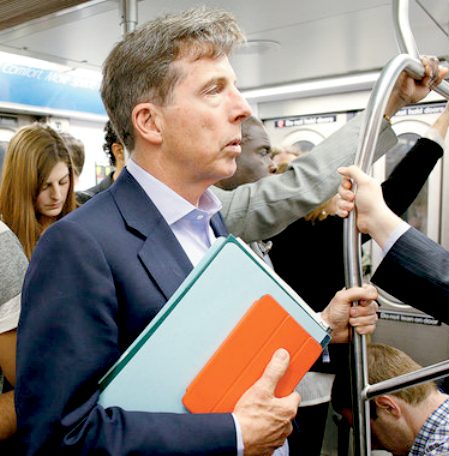
Barclays Bank Group
former Chief Executive: Robert Diamond
FEBRUARY
2013 BBC NEWS - LONDON INTER BANK LENDING RATE: LIBOR
Libor,
the London inter-bank lending rate, is considered to be one of the most
crucial interest rates in finance. It underpins trillions of pounds worth
of loans and financial contracts.
So, when Barclays was fined £290m in June last year after some of its
derivatives traders were found to have attempted to rig this key rate,
already weak public confidence in banks was harmed further.
The scandal led to the resignation of both Barclays chief executive Bob
Diamond and chairman Marcus Agius. Here are some of the key dates in the
scandal:
2005
As early as 2005 there was evidence Barclays had tried to manipulate
dollar Libor and Euribor (the eurozone's equivalent of Libor) rates at the
request of its derivatives traders and other banks.
Misconduct was widespread, involving staff in New York, London and Tokyo
as well as external traders.
Between January 2005 and June 2009, Barclays derivatives traders made a
total of 257 requests to fix Libor and Euribor rates, according to a
report by the FSA.
One Barclays trader told a trader from another bank in relation to
three-month dollar Libor: "duuuude... what's up with ur guys 34.5 3m
fix... tell him to get it up!".
2007
At the onset of the financial crisis in September 2007 with the collapse
of Northern Rock, liquidity concerns drew public scrutiny towards Libor.
Barclays manipulated Libor submissions to give a healthier picture of the
bank's credit quality and its ability to raise funds. A lower submission
would deflect concerns it had problems borrowing cash from the markets.
Barclays' Libor submissions were at the higher end of the range of
contributing banks, and prompted media speculation about the true picture
of the bank's risk and credit profile.
Senior treasury managers instructed submitters to reduce Libor to avoid
negative publicity, saying Barclays should not "stick its head above
the parapet", according to the FSA report.
From as early as 28 August, the New York Fed said it had received
mass-distribution emails that suggested that Libor submissions were being
set unrealistically low by the banks.
On 28 November, a senior submitter at Barclays wrote in an internal email
that "Libors are not reflecting the true cost of money",
according to the FSA.
In December, a Barclays compliance officer contacted the UK banking lobby
group British Bankers' Association (BBA) and the FSA and described
"problematic actions" by other banks, saying they appeared to be
understating their Libor submissions, according to US regulator the
Commodity Futures Trading Commission (CFTC).
On 6 December, a Barclays compliance officer contacted the FSA, according
to the FSA report, to express concern about the Libor rates being
submitted by other banks, but did not inform the FSA that its own
submissions were incorrect, instead saying that they were "within a
reasonable range".
The FSA said that the same compliance officer then told Barclays senior
management that he told the FSA "we have consistently been the
highest (or one of the two highest) rate provider in recent weeks, but
we're justifiably reluctant to go higher given our recent media
experience", and that the FSA "agreed that the approach we've
been adopting seems sensible in the circumstances".
In early December, the CFTC said that the Barclays employee responsible
for submitting the bank's dollar Libor rates contacted it to complain that
Barclays was not setting "honest" rates.
The employee emailed his supervisor about his concerns, saying: "My
worry is that we (both Barclays and the contributor banle panel) are being
seen to be contributing patently false rates.
"We are therefore being dishonest by definition and are at risk of
damaging our reputation in the market and with the regulators. Can we
discuss urgently please?"
On 6 December a Barclays compliance officer contacted the FSA about
concerns over the levels that other banks were setting their US Libor
rate. This was made after a submitter flagged to compliance his concern
about mis-reporting the rate. Compliance informed the FSA that "we
have consistently been the highest (or one of the two highest) rate
provider in recent weeks, but we're justifiably reluctant to go higher
given our recent media experience".
He also reported that the FSA "agreed that the approach we've been
adopting seems sensible in the circumstances, so I suggest we maintain
status quo for now".
In a phone call on 17 December a Barclays employee told the New York Fed
that the Libor rate was being fixed at a level that was unrealistically
low.
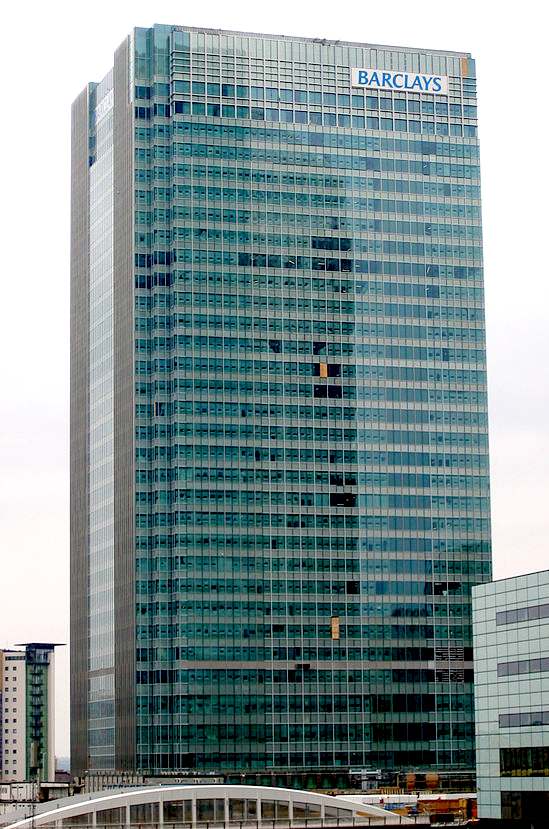
2008
On 11 April a New York Fed official queried a Barclays employee in detail
as to the extent of problems with Libor reporting. The Barclays employee
explained that Barclays was underreporting its rate to avoid the stigma
associated with being an outlier with respect to its Libor submissions,
relative to other participating banks
On 16 April, the Wall Street Journal published a report that questioned
the integrity of Libor.
Around this time, according to the CFTC, a senior Barclays treasury
manager informed the BBA in a phone call that Barclays had not been
reporting accurately. But he defended the bank, saying it was not the
worst offender: "We're clean, but we're dirty-clean, rather than
clean-clean."
"No one's clean-clean," the BBA representative responded.
According to the FSA, following the Wall Street Journal report, Barclays
received communications from the BBA expressing concern about the accuracy
of its Libor submissions. The BBA said if the media reports were true, it
was unacceptable.
On 17 April, a manager made comments in a call to the FSA that Barclays
had been understating its Libor submissions: "We did stick our head
above the parapet last year, got it shot off, and put it back down again.
So, to the extent that, um, the Libors have been understated, are we
guilty of being part of the pack? You could say we are... Um, so I would,
I would sort of express us maybe as not clean clean, but clean in
principle."
In late April officials from the New York Federal Reserve Bank - which
oversees the banks in New York - met to determine what steps might be
taken to address the problems with Libor, and notified other US agencies.
On 6 May the New York Fed briefed senior officials from the US Treasury in
detail, and thereafter sent a further report on problems with Libor.
The New York Fed officials also met with BBA officials to express their
concerns and establish in greater depth the flaws in the Libor-setting
process.
On 29 May, Barclays agreed internally to tell the media that the bank had
always quoted accurate and fair Libors and had acted "in defiance of
the market" rather than submitting incorrect rates, according to the
FSA.
In early June, Tim Geithner, who was the head of the New York Fed at the
time, sent Bank of England governor Sir Mervyn King, a list of proposals
to to try to tackle Libor's credibility problem.
They included the need "to eliminate the incentive to misreport"
by protecting the identity of the banks that submitted the highest and
lowest rates.
Sir Mervyn and Mr Geithner, now US Treasury Secretary, had discussed the
matter at a central bankers' gathering a few days earlier.
Shortly afterwards, Sir Mervyn confirmed to Mr Geithner that he had passed
the New York Fed's recommendations onto the BBA soon afterwards.
Spring: The BBA prepares a review of Libor, later described by the Bank of
England's deputy governor Paul Tucker as "tremendously important
because of the eroding credibility of Libor". The Bank wanted Libor
to reflect actual rates, not subjective submissions. Mr Tucker rang the
banks stressing the review should be carried out by senior
representatives, not the junior people normally sent to sit on the BBA
committee.
On 10 June, the BBA published a consultation paper seeking comments about
proposals to modify Libor. "The BBA proposes to explore options for
avoiding the stigma whilst maintaining transparency," it said.
Barclays contributed comments but avoided mentioning its own rate
submissions.
On 5 August, the BBA published a feedback statement on its consultation
paper, and concluded that the existing process for submissions would be
retained.
In September, following the collapse of Lehman Brothers, the Bank of
England had a conversation with a senior Barclays official, in which the
Bank raised questions about Barclays' liquidity position and its
relatively high Libor submissions.
On 13 October, the UK government announces plans to pump billions of
pounds of taxpayers' money into three major banks, effectively part-nationalising
Royal Bank of Scotland (RBS), Lloyds TSB and HBOS.
A week later, on 21 and 22 October, Paul Tucker and senior government
official Sir Jeremy Heywood discussed why Libor in the UK was not falling
as fast as in the US, despite government action. Sir Jeremy also asked why
Barclays' borrowing costs were so high. "A lot of speculation in the
market over what they are up to," he says in an email.
In subsequent evidence to the Treasury Select Committee Mr Tucker later
suggests there was widespread concern at this time that Barclays was
"next in line" for emergency government help. He was in regular
contact with Bob Diamond, emails show.
On 24 October a Barclays employee tells a New York Fed official in a
telephone call that the Libor rate is "absolute rubbish".
On 29 October Paul Tucker and Bob Diamond - head of Barclays' investment
bank at the time - speak on the phone. According to Mr Diamond's account
of the conversation, emailed to colleagues the next day, Mr Tucker said
senior Whitehall officials wanted to know why Barclays was "always at
the top end of Libor pricing".
According to the Barclays chief executive, Mr Tucker said the rates
"did not always need to be the case that we appeared as high as we
have recently". Mr Tucker later said that gave the "wrong
impression" of their conversation and said he did not encourage
Barclays to manipulate its Libor submissions.
Following this discussion with the Bank of England, Barclays instructed
Libor submitters to lower the rate to be "within the pack".
On 17 November, the BBA issued a draft document about how Libor rates
should be set and required banks to have their rate submission procedures
audited as part of compliance. The final paper would be circulated on 16
July 2009.
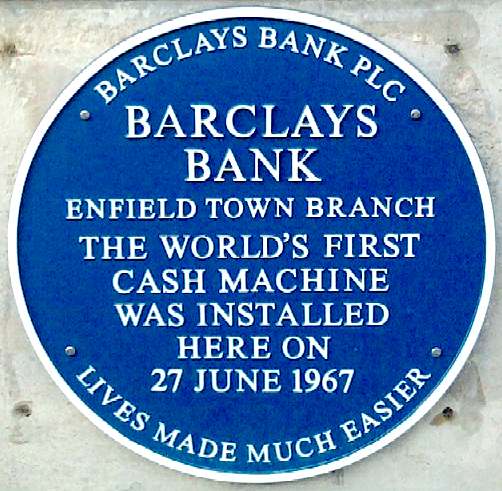
Barclays
were the first bank in the world to install a cash machine. The idea of out-of-hours cash distribution developed from banker's needs in Asia (Japan), Europe (Sweden and the United Kingdom) and North America (the United States). In the US patent record, Luther George Simjian has been credited with developing a "prior art device". Specifically his 132nd
patent (US3079603) was first filed on 30 June 1960 (and granted 26 February 1963). The roll-out of this machine, called Bankograph, was delayed by a couple of years, due in part to Simjian's Reflectone Electronics Inc. being acquired by Universal Match Corporation. An experimental Bankograph was installed in New York City in 1961 by the City Bank of New York, but removed after six months due to the lack of customer acceptance. The Bankograph was an automated envelope deposit machine (accepting coins, cash and cheques) and did not have cash dispensing features.
In simultaneous and independent efforts and at the request of bankers, engineers in Japan, Sweden, and Britain developed the first cash machines during the early 1960s. The first of these that was put into use was by Barclays Bank in Enfield Town in north London, United Kingdom, on 27 June 1967. This machine was inaugurated by English comedy actor Reg Varney. This instance of the invention is credited to John Shepherd-Barron of printing firm De La Rue, who was awarded an OBE in the 2005 New Year Honours. This design used paper cheques issued by a teller or cashier, marked with carbon-14 for machine readability and security, which in a latter model were matched with a personal identification number (PIN). Shepherd-Barron stated;
"It struck me there must be a way I could get my own money, anywhere in the world or the UK. I hit upon the idea of a chocolate bar dispenser, but replacing chocolate with cash."
2009
On 2 November the BBA circulated guidelines for all contributor banks on
setting Libor rates in the same manner. Barclays made no changes to its
systems to take account of the BBA guidelines.
In December Barclays started to improve its systems and controls but
ignored the BBA's guidelines. Until 2009 the bank did not have a formal
Chinese wall between the derivatives team and the submitters.
2010
In June, Barclays circulated an email to submitters that set out
"fundamental rules" that required them, for example, to report
to compliance any attempts to influence Libor submissions either
externally or internally. It also prohibited communication with external
traders "that could be be seen as an attempt to agree on or impact
Libor levels".
2011
In late 2011, Royal Bank of Scotland sacked four people for their alleged
roles in the Libor-fixing scandal.
2012
On 27 June, Barclays admitted to misconduct. The UK's FSA imposed a
£59.5m penalty. The US Department of Justice and the Commodity Futures
Trading Commission (CFTC) imposed fines worth £102m and £128m
respectively, forcing Barclays to pay a total of around £290m.
On 29 June, chief executive Bob Diamond said he would attend a Commons
Treasury Select Committee and that the bank would co-operate with
authorities. However, he insisted he would not resign.
The same day, Bank of England governor Sir Mervyn King called for a
"cultural change", adding: "The idea that one can base the
future calculation of Libor on the idea that 'my word is my Libor' is now
dead." He said implementing the Vickers banking reforms was the most
important first step, but ruled out a Leveson-style inquiry into the
banks.
On 2 July, Barclays chairman Marcus Agius resigned and also tendered his
resignation as chairman of the BBA. Mr Diamond said in a letter to staff
that he would "get to the bottom" of what happened.
Prime Minister David Cameron announced a parliamentary review of the
banking sector, to be headed by the chairman of the Treasury Select
Committee, Andrew Tyrie. The review should ensure that the UK had the
"toughest and most transparent rules of any major financial
sector", Mr Cameron said.
On 3 July, Barclays chief executive Bob Diamond resigned, saying that the
external pressure on the bank risked "damaging the franchise".
He was followed by Barclays chief operating officer Jerry del Missier, who
resigned the same day.
On 4 July, Mr Diamond faced a three-hour grilling from MPs on the Treasury
Committee over the scandal, during which he described the behaviour of
those responsible as "reprehensible" and said it had made him
physically ill. The Committee subsequently accused him of giving evidence
that fell short of its expected standards.
On 5 July, credit rating agency Moody's lowered its rating outlook on
Barclays from stable to negative.
On 6 July, the Serious Fraud Office launched a criminal investigation into
Libor manipulation.
Deputy governor of the Bank of England Paul Tucker gave evidence to the
Treasury on 9 July, insisting he had not leant on Barclays to lower its
submissions, nor had he been asked to do so by the government.
On 16 July, Barclays chief operating officer Jerry del Missier told MPs he
was instructed by Diamond to lower the bank's Libor submissions. He also
told them he believed the Bank of England alone instructed Barclays to
lower them.
On 17 July, US Federal Reserve chairman Ben Bernanke told a Senate
committee that the Libor system was "structurally flawed" said
that he still did not have full confidence in the system.
Earlier, the governor of the Bank of England, Sir Mervyn King, told the
Treasury Committee that UK authorities had been worried about senior
management at Barclays, even before the recent Libor scandal broke. Sir
Mervyn said Barclays had sailed "close to the wind" too often.
On 31 July, Deutsche Bank confirmed that a "limited number" of
staff were involved in the Libor rate-rigging scandal. However, it said an
internal inquiry had cleared senior management of taking part.
On 10 August, the FSA published its initial findings on what needs to be
done to reform the Libor rate-setting system. The FSA's managing director,
Martin Wheatley, said trust in Libor "needs to be repaired" and
that the current system was no longer "viable".
On 16 August, it was announced that seven banks including Barclays, HSBC
and RBS are to face legal questioning in the US. The other banks to
receive the subpoenas from the attorney generals of New York and
Connecticut were Citigroup, Deutsche Bank, JPMorgan and UBS.
On 18 August, the Treasury Committee published its report into the Libor
rate-fixing scandal. The MPs blamed bank bosses for
"disgraceful" behavior. They demanded changes including higher
fines for firms that failed to co-operate with regulators, examination of
gaps in criminal law, and a much stronger governance framework at the Bank
of England. The committee also criticised the evidence of former Barclays
boss Bob Diamond, saying it had been "highly selective". In
response, he said he had "answered every question that was put to me
truthfully, candidly and based on information available to me".
On 25 September, the British Bankers' Association (BBA), the organisation
that sets the Libor rate, said it would accept losing the role. Its
statement came ahead of the FSA's final report on how to reform Libor, due
to be published on 28 September.
On 28 September, the FSA confirmed that the BBA would no longer administer
Libor, and would be replaced by a data provider (an organisation such as
Bloomberg or Reuters) or a regulated exchange. The report also said that
the Libor system was broken and suggested its complete overhaul, including
criminal prosecutions for those who try to manipulate it. The regulator
also suggested basing Libor calculations on actual rates being used,
rather than estimates currently provided by banks.
On 11 December, the UK's Serious Fraud Office said three men had been
arrested in connection with its continuing investigations into Libor.
On 19 December, Swiss bank UBS is fined a total of $1.5bn (£940m) by US,
UK and Swiss regulators for attempting to manipulate Libor. It agrees to
pay $1.2bn in combined fines to the US Department of Justice and the
Commodities Futures Trading Commission, £160m to the UK's Financial
Services Authority, and 59m Swiss Francs to the Swiss Financial Market
Supervisory Authority.

The Barclays Asia Trophy has been held biennially since 2003 and is the only Premier League-affiliated competition to take place outside England. This year the Barclays Asia Trophy will see debut appearances from Arsenal and Stoke City, while Everton appear in the Tournament for the first time since 2005. The Singapore Select XI is the first team from Singapore to compete in the Barclays Asia Trophy. It will consist mainly of players from the Singapore National Team.
2013
On 10 January, the BBC's business editor, Robert Peston, discloses that
RBS is in talks with UK and US regulators over the size of fines to settle
the Libor investigation. He also warns that the resignation of a senior
executive was possible as part of a settlement.
A week later, on 17 January, the new chief of Barclays, Antony Jenkins,
tells staff to sign up to a new code of conduct - or leave the firm - as
part of an attempt to ensure that scandals such as Libor-fixing never
happen again.
On 25 January, a judge refuses a request from 104 senior Barclays staff
for anonymity during a court case. Guardian Care Homes had accused the
bank of mis-selling it an interest rate hedging product linked to Libor.
On 31 January, Deutsche Bank tells investors that it may face lawsuits
related to the manipulation of Libor, as well as other recent scandals.
Therefore, the bank said, it was setting aside 1bn euros to cover
potential litigation.
Amid speculation that RBS was close to a Libor settlement, on 2 February
the Chancellor of the Exchequer George Osborne says that any fines imposed
on the bank should be met by bankers themselves, not taxpayers.
OTHER
BANKS IN THE MIX
LLOYDS
The
Eastbourne branch of Lloyds Bank held an account for an environmental not
for profit company for two years without any issues.
Things
changed when one of the volunteers of this company became known to Lloyds,
when they appear to have joined forces with Sussex police and Wealden
District Council. It all started many years before when the victim of this
vendetta staged a fight with Wealden
District Council, asking Sussex
Police to investigate what appeared to be organised malfeasance
in public office, a serious crime for which the maximum penalty is life
imprisonment.
The
police failings happened some years before HSBC got involved using
anti-money laundering statute to ask questions that appear to be similar
in form and to target one individual - the person who was making waves for
Sussex police and
the planning officers and chief executives of Wealden
District Council.
Little
was the victim of this conspiracy to know, but there was a masonic
link lurking in the background in the form of the assistant
district planning officer and his father in law, Bernard Best, and a
councillor who belonged to the Tyrian
Lodge in South Street, just around the corner from the police station
in Grove Road.
The
pattern of questions that Lloyds bank were asking were first identified in
a Contravention Notice served by Wealden on their target and other
organisations with an interest from 2017. Later, Lloyds
Bank asked a similar series of questions, once again targeting the
same individual. Then HSBC joined in with Peter McIntyre and Laura Gaughan
asking more questions with the same target in the mix. The branch
concerned is/was at: 94 Terminus Road, Eastbourne, BN21 3ND.
The
objective appears to be to cause a lot of work for the individual and any
concern that he worked for, ultimately to force the closure of accounts -
and so prevent their target from making money or having any chance of
being successful contrary to Article
3 of the Human Rights Act 1998. You might care to agree that banks are
supposed to be supportive of entrepreneurs, not do their best to put them
out of business.
HSBC
- CONSPIRACY
More
of the same followed when HSBC joined in by asking a soft drinks company a
similar set of questions. They wrote back to Laura
Gaughan asking for clarification of issues, also providing copy of the
contravention notice and other planning related documents that proved the
the district council had lied to the Secretary of State in 1987
and 1997.
Ms Gaughan failed to respond to the request for information and ignoring
the letter from the soft drinks company, Peter
McIntyre gave notice that the account would be closed.
In
November of 2018 a director of the soft drinks company attended the
Eastbourne branch to ask why the company's correspondence had been
ignored, when the account manager, Tim
Austin, tried to explain that all customers were being asked similar
questions. Mr Austin made it plain that he was not privy to the
correspondence, hence could not comment on the complaint. The complainant
makes no bones about Mr Austin, who had been helpful in the operation of
this account over the years. His reply though was near identical to Ms
Gaughan's when she was asked why the HSBC were asking a similar set of
questions to that Wealden and Lloyds bank had been asking. Ms Gaughan said
all customers were being asked the same questions. But that could not
possibly be true. Indeed, the level of research and coordination is
suggestive of a dedicated witch
hunt, all aimed at destroying the victim.
Lloyds
bank also failed to respond to questions put to them as to why they were targeting
this indiividual.
EUGENICS
The
United
Kingdom has laws that oppose the concept of a level playing field,
allowing the police, councils and banks to target individuals and to hound
them is such a manner as to prevent them from succeeding in the commercial
world. For example, their names are flagged up on banking computers,
whereupon the customer is given short shrift and shown the door. Hence,
the victim cannot compete in the commercial world. Given that everyone
should have the right to make a living on equal terms, this agenda appears
to have all the hallmarks of some kind of secret
society Fourth Reich in the making.
If
the allegations are true, this is discrimination plain and simple. The
kind of discrimination that led to the extermination of millions of Polish
and Jewish people in the Second World War,
after Adolf Hitler
took his empire building and supposed ethnic cleansing programmes to new
industrial heights with the Concentration
Camps that are his legacy.
The
Gestapo were enlisted to round up undesirables and herd them into the
death camps to do forced labour until they either died of malnutrition or
were put into the gas chambers to be exterminated using Zyklon
B or even just the exhaust fumes from motor
vehicles.
We
wonder if this is a new era of Nazism in a new form. Clearly, if this kind
of targeting of individuals is taking place by way of an undercurrent of
activities by the state aimed at disadvantaging certain people, Article
14 is being violated along with many other Human
Rights conventions adopted by the United
Nations by way of the Universal
Declaration.
We
await hearing from the HSBC and/or any of their employees (in confidence)
should any member of their staff wish to Blow
the Whistle.
BARCLAYS
CONTACTS
Please direct your queries to:
Barclays Bank PLC
1 Churchill Place
London
E14 5HP
0800 015 4242
newclient.team@barclays.com
internetsecurity@barclays.co.uk
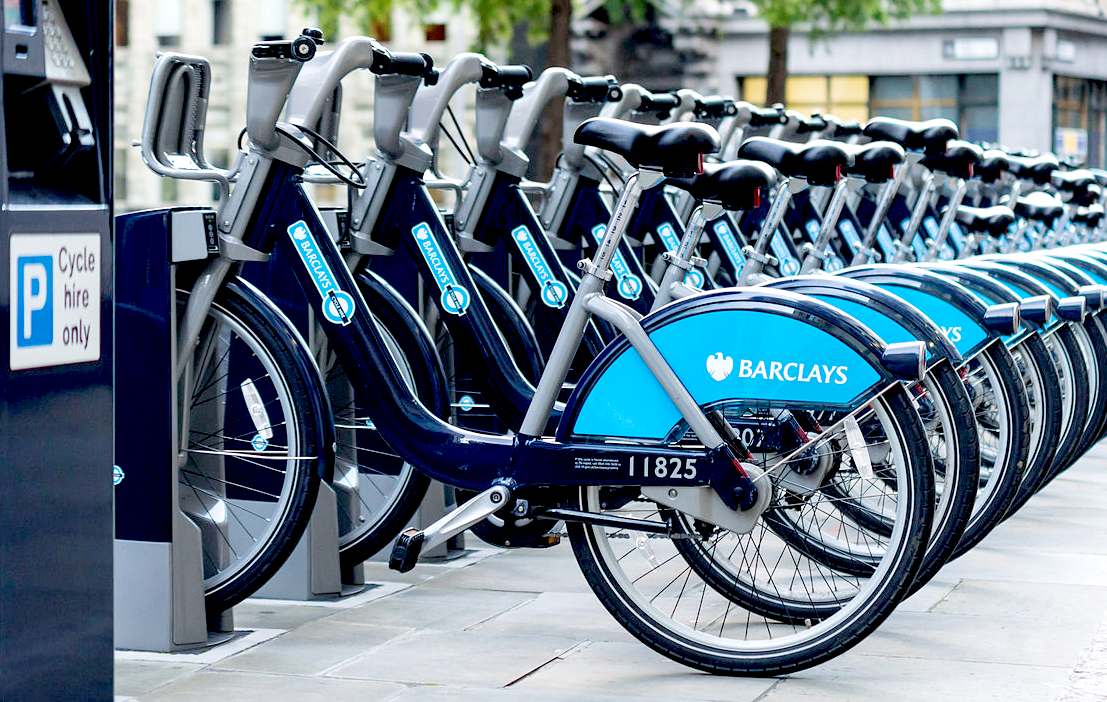
Santander Cycles is a public bicycle hire scheme in London, United Kingdom. The scheme's bicycles are popularly known as Boris Bikes, after Boris Johnson, who was the Mayor of London when the scheme was launched.
The operation of the scheme is contracted by Transport for London to Serco. The scheme is sponsored, with Santander UK being the main sponsor from April 2015. Barclays Bank was the first sponsor from 2010 to March 2015, when the service was branded as Barclays Cycle Hire.
Credit for developing and enacting the scheme has been a source of debate. Johnson has taken credit for the plan,[ although the initial concept was announced by his predecessor Ken
Livingstone, during the latter's term in office. Livingstone has said that the programme would herald a "cycling and walking transformation in London" and Johnson said that he "hoped the bikes would become as common as black cabs and red buses in the capital".
A study showed cyclists using the scheme are three times less likely to be injured per trip than cyclists in London as a whole, possibly due to motorists giving cycle hire users more road space than they do other cyclists. Moreover, recent customer research showed that 49 per cent of Barclays Cycle Hire members say that the scheme has prompted them to start cycling in London.
During the 2012 Olympic Games, a record of 47,105 cycle hires were made in a single day.
BANKING
ERRORS FROM MISCOMMUNICATIONS ETC
Banks sometimes wishes to change methods of trading
to get out of providing services to clubs and not for profit
organisations. They might do this despite the obligations to any such
organisation or individual.
It
seems that this is a widespread practice, not limited to any particular
bank, but in this case we are looking at one case where the wishes of the
account holders were not respected.
|
Financial
Ombudsman Service
Recorded Post
Exchange
Tower
London,
E14 9SR
2 March 2015
Dear
Sir or Madam:
BARCLAYS
BANK - WRONGFUL ACCOUNT CLOSURE
We
(collectively) are the trustees of a historic building that we
are doing our best to raise money to restore. One of our
trustees had an account that we planned to use to accept monies
from our fund raising projects, one of which is a publication
that we want to release as an e-book.
The
account is/was: “Generating Works Restoration Association,”
account number 80170925. The sort code is/was 20-27-92. This is
in connection with an early electricity generating building
dating from 1909.
Barclays
bank knew of our intentions for this account, but one day they
wrote to us telling us they would close the account unless they
heard from us to keep the account open. We duly wrote to
Barclays Bank by recorded delivery and well within their stated
timeframe, explaining why we needed the account and to please
keep it open.
Despite
this, Barclays closed the account. Please see copies of our
letters dated the 13th of December 2013 and 4th
of December 2014. Please also see copy of Barclay’s reply to
us dated the 11th of December 2014.
In
Barclays’ most recent letter they admit closing the account in
error and offer us £126 in compensation. They go on to say that
we should attend one of their branches to fill in a “Re-Open
Closed Account Form”. We knew this was poor advice from
previous efforts along those lines but felt obliged to give it
another go. Thinking that perhaps they’d made special
arrangements.
Thus,
on the 26th of February 2015 one of our trustees took
time out again to attempt to re-open the account, at the
Eastbourne branch. He was kept waiting for over 30 minutes and
finally when he was seen, the lady trying to sort this out
(Debbie Hayes) was also bounced from pillar to post on the
telephone, finally coming to the conclusion that it was not
possible to re-open the closed account, as per the advice in
their letter of the 11th of December 2014. Full marks
though to Ms Hayes for trying.
As
before, Barclays wanted us to open a different type of account,
being much more convoluted to do so and not the same service in
any event. We were very happy with the account we enjoyed
previously for many years, we might add without hiccup.
Now
we have a cheque from Barclays for £126 that we cannot cash,
because we cannot re-open our original account. The fact is
though that the bank contracted with us to provide a service and
breached their own terms and conditions. This has caused us loss
in the form of the time of our trustees (take time out from
work) in having to discuss this and arrange for replies, etc,
and has also caused us to keep on hold the release of the
publication we advised the bank of, pending the re-opening of
our account. Thinking that it would speed things along, we never
asked for consequential losses at that time, as you will see.
We
have come to you with this complaint well within the six months
time limit, so could we please ask you to try to resolve this
matter for us, without costing any of our trustees more time
than is absolutely necessary to restore our original
account. We are sure that in the digital age, that any
well-organised bank can sort this from head office within
minutes of opening their system. We imagine, just as easily as
they closed the account.
Whereas,
at the moment they seem determined to put us to additional
trouble and to a very different type of account, when the
mistake is theirs, not ours.
If
for any reason our account still cannot be restored, could we
then ask you to look at the issue of consequential loss,
something that the bank have so far not been asked to consider.
We
hope that with the Ombudsman looking into this matter that it
might finally reach a satisfactory conclusion.
Thanking
you in anticipation.
Yours
faithfully,
for Lime Park Heritage
Trust |
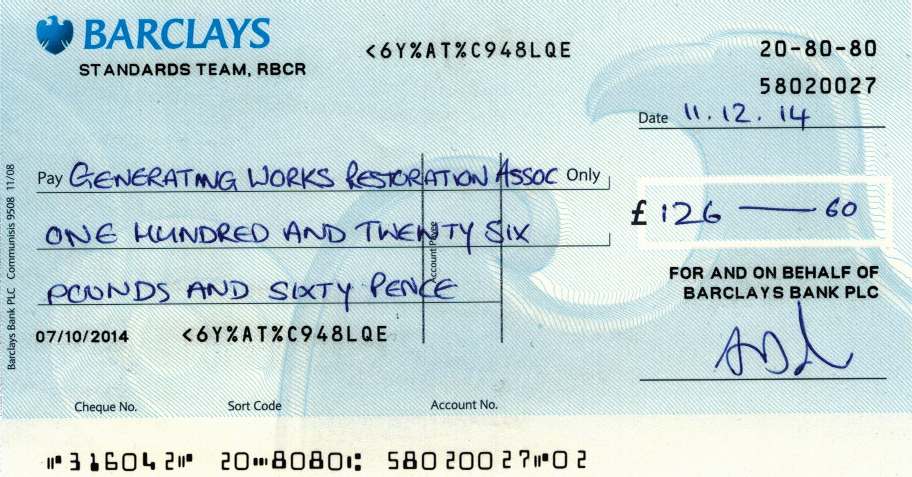
As
a result of the communications with the FSO, the complainants were told to
expect a revised offer from Barclays. They waited patiently but heard
nothing from the bank, despite gentle reminders.
The
bank opened an account in principle, but there are no funds in the
account. Hence, monies have been taken illegally according to the Fraud
Act 2006 - FRAUD BY ABUSE OF POSITION
Section 4 (1) (a) occupies a position in which he is expected to safeguard, or not to act against, the financial interests of another person, and (c) intends, by means of the abuse of that
position -
(i) to make a gain for himself or another, or
(ii) to cause loss to another or to expose another to a risk of loss.
and Section 4 (2). A person may be regarded as having abused his position even though his conduct consisted of an omission rather than an act.
Having
waited so long and not heard from this Bank, a further letter was sent to
the Chairman, John McFarlane, in the hope that this matter might be put to
rest, avoid having to raise the issue with the Police and/or the Financial
Conduct Authority.
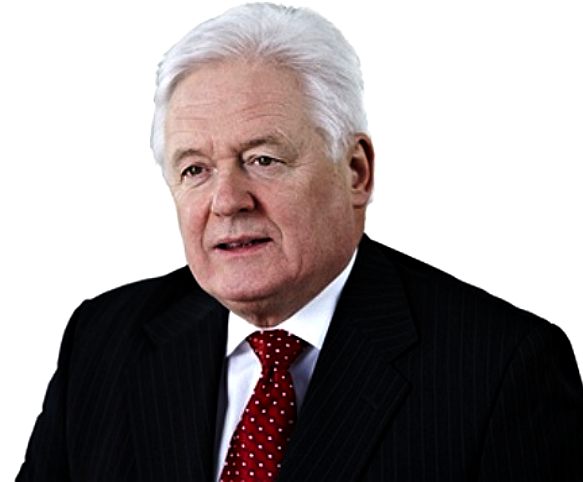
THE
CHAIRMAN SEPT 2014 - Barclays has turned to John McFarlane to rebuild its relationship with shareholders, appointing the Scottish-born banker as its chairman.
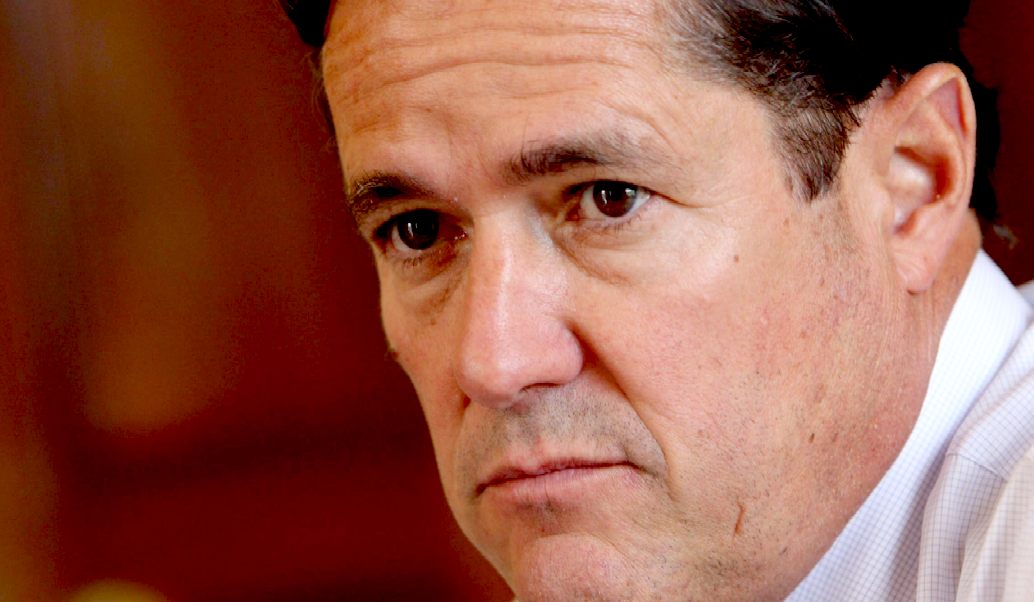
CHIEF
EXECUTIVE OFFICER - James Staley is the new CEO of Barclays
Bank. James E. Staley has been appointed as Group Chief Executive Officer of Barclays. Mr Staley will take up his role, and join the Boards of Barclays PLC and Barclays Bank PLC as a Director, with effect from 1 December 2015.
LINKS
& REFERENCE
Wikipedia
Barclays
BBC
News business
Barclays LIBOR rate fixing scandal fines
Barclays
Personal Banking
Home
barclays
New
York Times 2013
May 5 magazine Robert Diamonds next life
http://www.bankofengland.co.uk/
http://www.santander.co.uk/uk/index
http://www.nytimes.com/2013/05/05/magazine/robert-diamonds-next-life.html
http://www.barclays.co.uk/PersonalBanking/P1242557947640
http://www.home.barclays/
http://www.bbc.co.uk/news/business-18671255
https://en.wikipedia.org/wiki/Barclays
MONEY
FINDER
Kulo
Luna $billion dollar whale
When
a pirate whaler kills a small humpback whale, her giant friend sinks the
pirate ship to avenge the death, but is itself wounded. The pirates put
a price on the whale's head, but an adventurer in an advanced solar
powered boat races to beat the pirates and save the wounded animal.

A
heartwarming action adventure: Pirate whalers V Conservationists, with
an environmental message and a $Billion dollars riding on the winner.
For release as an e-book in 201 6 with hopes for a film in
2018.
|








